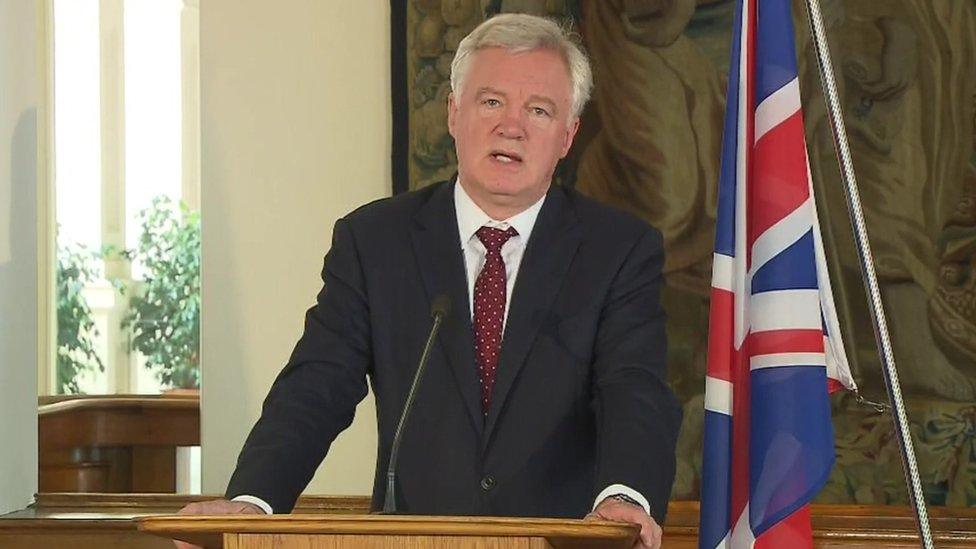Brexit: UK and EU still split on citizens' rights
- Published
- comments

Brexit Secretary David Davis has said there is a "moral imperative" to reach a swift deal on the rights of EU nationals living in the UK.
He said the UK government took "very, very seriously" the need to end their anxiety and uncertainty.
Mr Davis again signalled that he was not willing to compromise over the role of the European Court of Justice (ECJ).
But European Parliament Brexit negotiator Guy Verhofstadt insisted the ECJ "must play its full role".
The European Court of Justice has emerged as the central stumbling block in reaching a deal on the rights of EU nationals.
EU sources last week described the conflict over the court as "a fundamental issue, a fundamental difference between the two sides on this".
However, Mr Davis, in Prague for talks with the Czech foreign minister LubomûÙr ZaorûÀlek, said the British government intended to introduce legislation to establish the rights of EU nationals, which would be enforced by British courts.
"We intend this should be put in an act of parliament enforced by the British courts - and I don't think anybody has ever argued that the British courts are anything other than trustworthy in terms of defending the rights of individuals," he said.
"And most importantly, this would be backed up by a treaty - so that the treaty itself is enforceable as well. That's the way we're going to do it."
Guy Verhofstadt says the European Parliament will continue to push for full rights for EU citizens
Mr Davis said giving EU nationals in the UK the right to appeal to the European Court of Justice would be the same as allowing the US Supreme Court a role in Britain.
But in a statement after the second round of negotiations between the UK and EU, Mr Verhofstadt and the European Parliament Brexit Steering Group, said it would "remain vigilant" and "continue to push for full rights for EU citizens in the UK as well as UK citizens in the EU".
Mr Verhofstadt added that the European Parliament want the withdrawal agreement - or the terms of Britain's divorce from the EU - "to be directly enforceable and to include a mechanism in which the European Court of Justice can play its full role".
At the end of the press conference in Prague, Mr Davis stressed that under the UK proposals, Czech nationals would receive "the same rights as British citizens", such as residence rights, economic, employment, pension, health and welfare rights.
"Essentially, all of the rights other than the right to vote for the national government," he said.
But Mr ZaorûÀlek said he had told Mr Davis the Czech Republic had decided to open a general consulate in Manchester to give the 45,000 Czech citizens living in the UK a place "to get their documents in order" in preparation for Brexit.